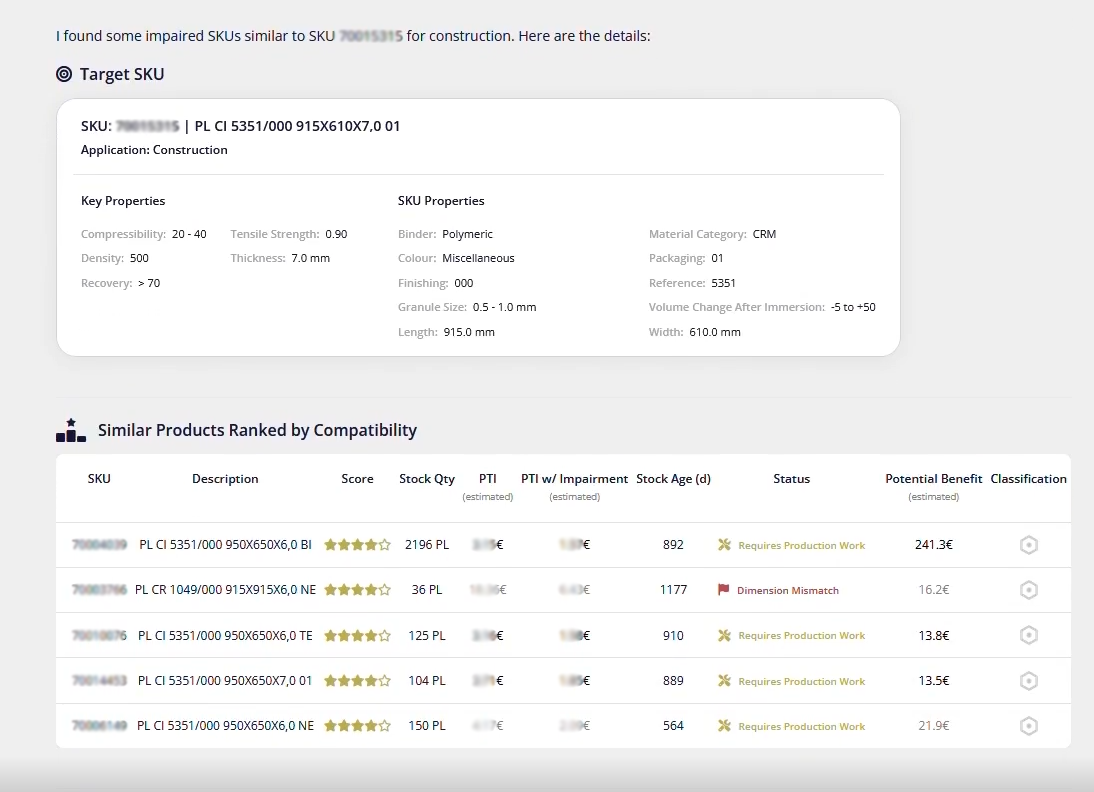Our AI-generated summary
Our AI-generated summary
In an increasingly demanding environment, players in FMCG (Fast-Moving Consumer Goods) industries strive to readily provide a vast assortment of products to their clients. However, this pressures companies to keep large amounts of stock and to have an efficient production process to keep up with demand.
Our client struggled to devise a production plan that achieves the perfect tradeoff between production (e.g., utilities, human resources) and logistics (e.g., warehousing, stock holding) costs for each one of its +350 products, while considering all intricacies related to its production process.
Using a state-of-the-art mathematical optimization model, we developed a methodology capable of suggesting a 12-week production plan, which minimizes overall costs, with the necessary flexibility to accommodate the company’s dynamic production process.
By considering production costs such as workforce, machine functioning, and raw-material spoilage as well as service-level and obsolescence costs, our client can now perform a data-driven decision for several of its factories.
To further streamline the company’s inventory management, we’ve also redefined the optimal safety-stock levels and production strategy, in accordance with each product’s demand patterns and required service levels.
By applying the developed methodology, our client expects to reduce total production and inventory-related costs by 4%, while experiencing a reduction of 2,5 days (9,5%) of stock coverage due to safety stock overall reduction.
Furthermore, by significantly reducing the time needed to develop a production plan, the company’s planning team is now able to rapidly respond to demand fluctuations and can allocate its time to more value-adding activities in the planning process.
Our AI-generated summary
Our AI-generated summary










.avif)





